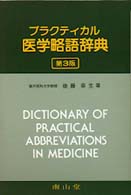Description
Handbook of Hormones: Comparative Endocrinology for Basic and Clinical Research, Second Edition presents a catalog of fundamental information on the structure and function of hormones from basic biology to clinical use, offering a rapid way to obtain specific facts about the chemical and molecular characteristics of hormones, their receptors, signaling pathways, and the biological activities they regulate. The book's stellar editorial board, affiliated with the Japan Society for Comparative Endocrinology, brings together authors that present a compelling structure of each hormone with a consistent presentation that provides a primer surrounding the plethora of hormones that now exist.Comparative endocrinology continues to rapidly expand and new information about hormones is being produced almost daily, making it important to stay up-to-date. Hormone, paracrine, and autocrine factors have been identified as key players in a range of different systems, including immune, musculoskeletal and cardiovascular. Frontiers between disciplines are being blurred and many scientists in fields other than endocrinology are interested in hormones. Scientists now have the unprecedented opportunity to look from invertebrates to vertebrate and identify novel regulatory factors and understand their function and how they determine an organism's physiology and survival.- Presents hormones in groups according to their origin so that readers can easily understand their inter-relation- Includes 47 new hormones, such as neuropeptides, cytokines, growth hormones, biogenic amines and amino acids that are important for cell to cell communication via endocrine, paracrine and neurotransmitter signaling- Summarizes the current knowledge of hormone evolution based on comparative genome resources, such as synteny, genome sequence and comprehensive phylogeny- Covers a wide range of information on hormones, from basic information on structure and function across vertebrate and invertebrate phyla to clinical applications- Collates key information on 259 hormones and 47 groups/families
Table of Contents
PART I PEPTIDES AND PROTEINS IN VERTEBRATESMolecule Evolution of Peptide and Protein Hormones in VertebratesSection I.1. Neuropeptides1. RFamide Peptide Family; 2. Corticotropin-Releasing Hormone Family; 3. Gonadotropin-Releasing Hormone; 4. Thyrotropin-Releasing Hormone; 5. Somatostatin/Neuronostatin; 6. Neurohypophysial hormone family; 7. Opioid Peptide Family; 8. Agouti Family; 9. Tachykinin Family; 10. Appetite-Regulating Peptides; 11. Urotensin II; 12. Neurotensin; 13. Neuromedin U/S /Precursor-related peptide; 14. Neuropeptide S; 15. Neuropeptide W; 16. Neuroendocrine Regulatory Peptide; 17. Neurosecretory peptide GL/GM; 18. Nesfatin-1; 19. Mexneurin; 20. PhoenixinSection I.2. Adenohypophysial Hormones21. Glycoprotein Hormone Family; 22. Growth Hormone/Prolactin Family; 23. Proopiomelanocortin FamilySection I.3. Gastrointestinal Hormones24. Glucagon Family; 25. Secretin (Pituitary Adenylate Cyclase-Activating Polypeptide) Family; 26. Insulin Family; 27. Gastrin Family; 28. Ghrelin_Motilin Family; 29. Bombesin-Like Peptide Family; 30. Guanylin Family; 31. Galanin Peptide Family; 32. Neuropeptide Y Family; 33. Chromogranin A/Pancreastatin; 34. XeninSection I.4. Parathyroid Gland, Ultimobranchial Gland, and Stannius Corpuscle Hormones35. Parathyroid Hormone Family; 36. Calcitonin/Calcitonin Gene-Related Peptide Family; 37. Stanniocalcin; 38 Cytokines; 39 Hematopoietic growth factors; 40 Cell proliferation factors; 41 NeurotrophinsSection I.6. Other Peripheral Hormones42. Renin-Angiotensin System; 43. Kallikrein-Kinin System; 44. Apelin; 45. ELABELA; 46. Natriuretic Peptide Family; 47. Gonadal Hormones; 48. Adipocyte Hormones; 49. Endothelin; 50. Irisin; 51. Osteopontin; 52. Osteocrin; 53. Hepcidin/Liver-expressed antimicrobial peptide 1; 54. Salusin; 55. Adropin; 56. Lipocalin-2PART II PEPTIDES AND PROTEINS IN INVERTEBRATESSection II.1. Neuropeptides Related to Vertebrate Hormones57. Gonadotropin-Releasing Hormone-Like Peptide Family; 58. Corticotropin-Releasing Factor-Like Peptide; 59. Oxytocin/Vasopressin Superfamily; 60. Neuropeptide F; 61. Short Neuropeptide F; 62. RYamide; 63. Tachykinin-Like Peptide Family; 64. Insulin Superfamily; 65. Sulfakinin; 66. Cionin; 67. Ci-Galanin-Like Peptide; 68. Allatostatin-C; 69. Calcitonin-like Diuretic Hormone; 70. Ascidian calcitonin; 71. Amphioxus calcitonin family peptide; 72. Achinoderm calcitonin family peptideSection II.2. Invertebrate-Unique Peptides73. FXPRLamide Peptide Family; 74. Crustacean Hyperglycemic Hormone; 75. Ion Transport Peptide; 76. Prothoracicotropic Hormone; 77. Bursicon; 78. Allatotropin; 79. Allatostatin-A; 80. Adipokinetic Hormone; 81. Neuroparsin; 82. Ovary Maturating ParsinSubsection II.2.2 Regulation of Myo/Cardio-Activities83. LF Peptides; 84. Invertebrate Kinins; 85. FMRFamides; 86. Myoinhibiting Peptide; 87. Myosuppressin; 88. Proctolin; 89. Orcokinins; 90. Crustacean Cardioactive Peptide; 91. Cardioacceleratory Peptide 2b; 92. Achatina Cardio-Excitatory Peptide-1; 93. Fulicins; 94. Buccalins; 95. Eisenia Inhibitory Pentapeptides; 96. GGNG PeptidesSubsection II.2.3 Regulation of Behaviors97. Eclosion Hormone; 98. Ecdysis Triggering Hormone; 99. Sex Peptide; 100. APWGamide; 101. SIFamide; 102. Egg-Laying HormoneSubsection II.2.4 Other Hormones and Neuropeptides103. Growth Blocking Peptide; 104. Yamamarin; 105. CCHamide; 106. Corazonin; 107. Trypsin-Modulating Oostatic Factor; 109. Pigment Dispersing Hormone; 110. GLWamide; 111. Hym-176; 112. Hym-301; 113. Leech Osmoregulatory Factor; 114. Ciona YFV/L peptidePART III LIPOPHILIC HORMONES IN VERTEBRATES115. Thyroid Hormones; 116. Gonadal Steroids; 117. Corticosteroids; 118. Neurosteroids; 119. Vitamin D DerivativesPART IV LIPOPHILIC HORMONES IN INVERTEBRATES120. Ecdysteroids; 121. Juvenile Hormone; 122. Methyl FarnesoatePART V ENDOCRINE DISRUPTING CHEMICALS123. Endocrine Disruptors; 124.







